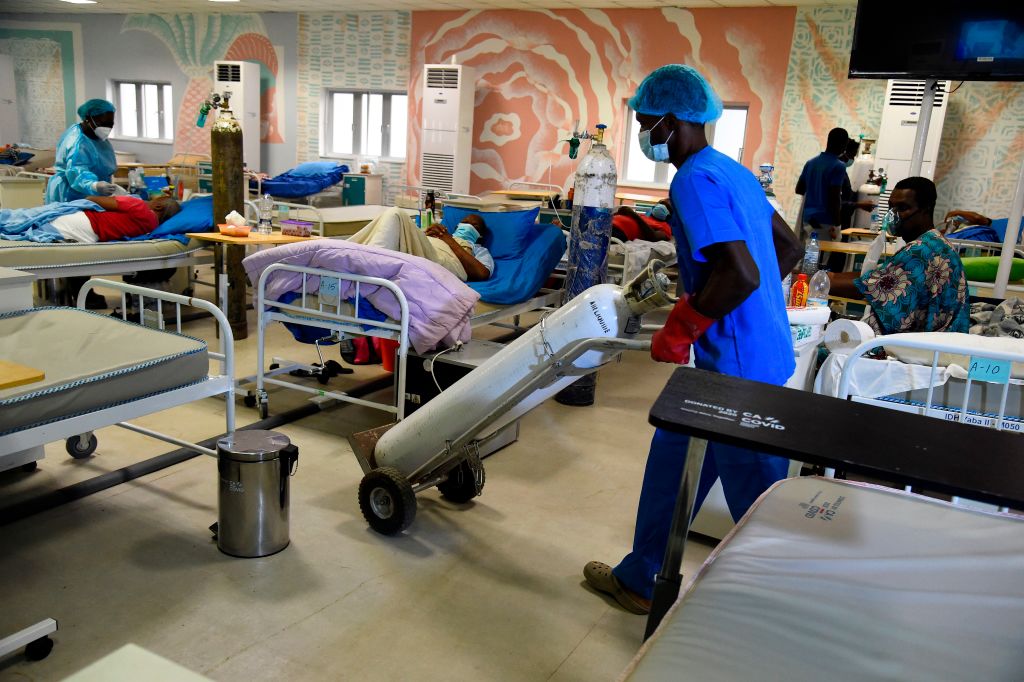ADF STAFF
The COVID-19 pandemic drove major changes to Nigeria’s health care system, creating a legacy that will improve the country’s health care generally and help it prepare for future pandemics. Yet there is still room for improvement.
That was the assessment of Nigerian doctors and researchers who gathered online to discuss how the country responded to the pandemic.
The pandemic prompted Nigeria to double its number of intensive-care beds from 250 to 500 and to distribute 200 ventilators and 4,000 oxygen generators across the country. The country also trained 20,000 health care workers in infection control.
“That benefit continues to be felt even after COVID,” Dr. Sani Aliyu, the former national coordinator for the Presidential Task Force on COVID-19, told the conference.
Despite those improvements, Nigeria still struggles to track vital statistics such as births and deaths that are important parts of public health, Aliyu said.
Officially, Nigeria has reported 264,000 cases of COVID-19 and just more than 3,100 deaths, but most believe the true totals are much higher.
“These figures are a gross underestimate of what has been going on in Nigeria,” Aliyu said.
As in many other countries, COVID-19 testing has dropped sharply, making it difficult to track the disease and any variants it may spawn. According to the Nigeria Center for Disease Control, the country of 200 million people has conducted 5.4 million COVID-19 tests since the pandemic began. Aliyu attributes the drop in testing to apathy.
“The testing we’re doing in the country is grossly inadequate,” Aliyu said. “Generally, from a public perspective, people feel that COVID is no longer an issue.”
However, COVID-19 remains a serious threat to people over 50, particularly if they have other health issues such as diabetes, HIV or tuberculosis, Aliyu said.
Dr. Mukhtar Muhammad, national incident manager for the Presidential Steering Committee on COVID-19, said the government continues to build its capacity to predict and respond to future disease outbreaks.
One part of that plan has been to add 1,000 new field epidemiologists to the nation’s ranks of disease experts. They’ll target diseases with high transmissibility and fatality risks.
“Many epidemiologists have been trained in every state in the federation,” Muhammad said. “Funds are being dedicated for all teaching hospitals for patient care and isolation.”
The government also has begun building a more robust system of collecting data on disease outbreaks, Muhammad said.
“For us as a country, the important part is using the data,” he said.
Collaboration with the private sector proved to be a crucial for Nigeria’s COVID-19 response. Private companies mobilized more than $93 million to upgrade health facilities and to counter disinformation, Aliyu said.
Despite the improvements COVID-19 inspired, Nigeria’s health care system still needs work, the experts agreed.
Dr. John Ndibe, former director of medical services in Anambra State, said a mismatch remains between where resources are needed and where they are available. State health systems also remain too dependent on the federal government for guidance, he said.
Aliyu acknowledged that work remains to be done to improve Nigeria’s health system.
“There’s no doubt the country has problems,” he said. “However, the system has benefited from the structured and coordinated way we ran the COVID response.”

